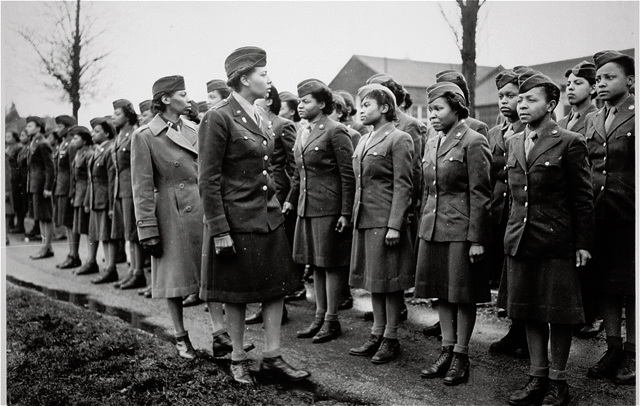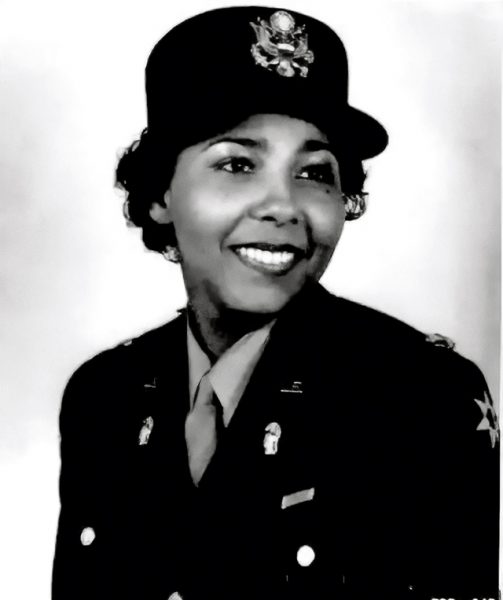
During Black History Month, the U.S. Army Garrison Rheinland-Pfalz joins the U.S. Army and our nation in remembering and celebrating the achievements and contributions of thousands of Black Americans.
The month of February was officially designated as Black History Month by President Gerald Ford in 1976. Ever since, the United States and other countries have dedicated a month to celebrating Black history.
“Freedom and the recognition of individual rights are what our Revolution was all about,” states Ford’s original proclamation. “They were ideals that inspired our fight for Independence: ideals that we have been striving to live up to ever since.”
The Army story cannot be told without reflecting on the courage, strength and legacy of Black Americans who helped shape the world we live in today. Black Americans have served and sacrificed in every conflict in our nation’s history, with more than 245 years of honorable service.
Lt. Col. Charity Adams Earley served as the highest-ranking Black woman officer during World War II. She has since paved the way for other Black women in the military.

Born in Kitrell, North Carolina, on Dec. 5, 1918, Earley was raised by her father, a minister, and her mother, a former teacher. Very intellectually gifted, she passed the test for early advancement to high school once she completed elementary school. However, her parents did not let her since she was already a few years ahead of her classmates.
Earley later graduated as valedictorian from Booker T. Washington High School and attended Wilberforce University of Ohio, one of the best African American universities at the time, thanks to a scholarship she received for graduating top of her class in high school.
She became very active in school groups, participating in the university’s branches of the National Association for the Advancement of Colored People (NAACP), the Women’s Self-Government Association and the Greek sorority, Delta Sigma Theta.
Earley graduated from Wilberforce University with a Bachelor of Arts in 1938, with majors in Latin, physics and mathematics. She minored in history, while also taking classes in education so that she could start teaching after graduation.
From 1938 to 1942, she taught math and science at a junior high school in South Carolina, and took summer graduate courses at Ohio State University (OSU) pursuing a major in vocational psychology.
As the United States joined World War II, an expansion of the U.S. military became necessary. The Women’s Auxiliary Army Corps, later known as Women’s Army Corps (WAC), was created, and Earley applied to and was accepted in the organization in 1942.
She became a member of the first officer candidate school and was commissioned in August 1942 at Fort Des Moines, Iowa, where she stayed until 1944 and worked as a staff training officer, a station control officer and a company commander.
In 1943, she was promoted to major, and by the end of 1944, she became the commanding officer of the 6888th Central Postal Directory Battalion. Nicknamed the “Six Triple Eight,” the battalion was the first unit of WAC African Americans to go overseas. Her battalion’s first mission in Birmingham, England, was to organize and distribute undelivered mail to U.S. service members.
The battalion started working around the clock in three shifts, seven days a week, clearing all the backlogged mail from the previous six months in only three months.
Earley’s battalion later moved to the postal facilities of Rouen, France, where once again, they were tasked with organizing mail that had gone undelivered, up to 65,000 pieces of mail per day.
By the end of WWII, the 6888th CPDB had cleared over 17 million pieces of backlogged mail, ensuring the troops stayed in touch with their loved ones back home. This played a huge role in boosting morale.
Earley was promoted to lieutenant colonel in December 1945 for her amazing work in the WAC – the highest possible rank for a Soldier in the WAC.
In March 1946, she requested to be discharged from active duty and was presented by the National Council of Negro Women Inc. with a scroll of honor for distinguished service to the military.
The same year, Earley completed her Master of Arts at OSU and started working at the Veterans Administration in Cleveland, Ohio, as a registration officer. She married Stanley A. Earley Jr. in 1949 and moved with him to Zurich, Switzerland, where she attended the Minerva Institute to master the German language. Later, Earley attended courses at the University of Zurich.
Upon her return to the United States in 1952, she devoted the rest of her life to activism and education, serving as a dean at Tennessee Agricultural & Industrial State College (now Tennessee State University), Georgia State University and many other organization boards.
In 1982, she founded the Black Leadership Development Program (BLDP) in Dayton, Ohio, to help educate and train Black Americans to be leaders in their communities.
Earley died in 2002 at the age of 83 in Dayton. Her name was recently selected by the Army as part of the Naming Commission recommendations, as part of the Army’s effort to rename installations previously named after Confederate officers.
Many organizations, to include the National Postal Museum, the National Women’s History Museum, Ohio Women’s Hall of Fame, the Smithsonian Institute and the South Carolina Black Hall of Fame, have recognized her contributions and dedication to promote opportunities for Black Americans.
A Black History Month observance ceremony will be hosted by the 21st Theater Sustainment Command’s Special Troops Battalion at the KMC Onstage Theater in Kaiserslautern, Feb. 24, at 1:30 p.m.


